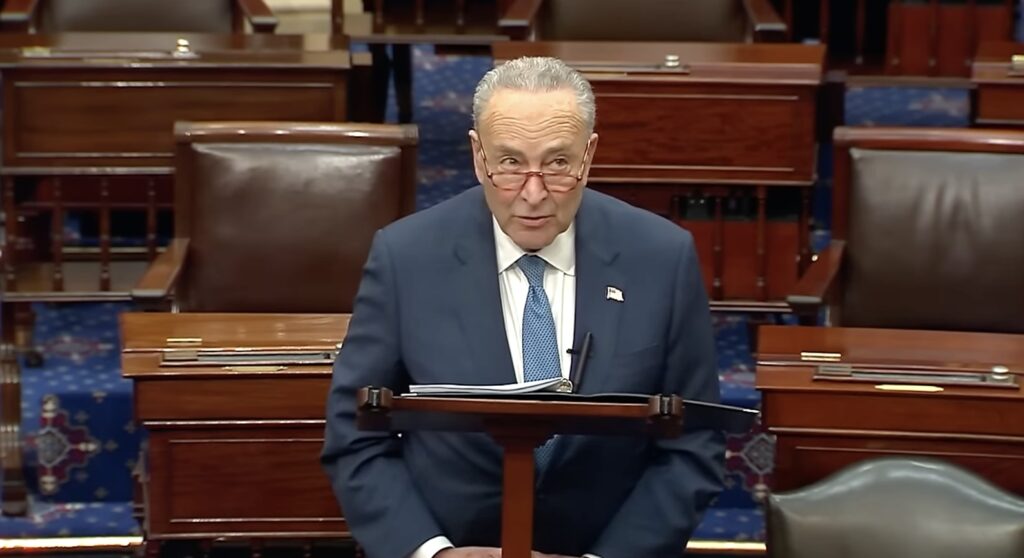The Schumer shutdown is finally over, and Democrats are desperately trying to spin the outcome as some kind of victory. It’s not. The meltdown from House Democrats when their Senate counterparts folded was nothing short of volcanic. Eight Democratic senators crossed the aisle to break the stalemate, and once the dam broke, the government-funding deal sailed through both chambers.
What did Democrats get for all their chest-thumping and weeks of tantrums? A deal that funds the government through January 30 so Congress can finish the appropriations bills that the shutdown derailed, keeps SNAP funded through September 2026, and promises a vote on Obamacare subsidies. In other words, it’s the exact same agreement Republicans put on the table back in mid-October.
Democrats didn’t win. They got rolled — and rolled hard. Trump and Republicans never budged on their refusal to dump $1.5 trillion into health-care benefits for illegal immigrants or to keep shoveling taxpayer money into NPR. Democrats spent weeks insisting the shutdown was a political gift — bragging that it helped them notch two wins in deep-blue states — but reality, as usual, turned out to be a lot more complicated than their talking points.
Their last-minute surrender didn’t play like some brilliant strategic masterstroke. Instead, it piled on even more frustration among swing voters in Georgia, who watched Democrats posture, stonewall, and then fold when it became clear Republicans weren’t giving an inch:
Georgia swing voters in our latest Engagious/Sago focus groups expressed frustration with Democrats for dragging out a federal government shutdown only to end it without a guarantee from Republicans to offset rising health insurance premiums.
Why it matters: Even some voters who backed President Trump last November look to Democrats to protect health care affordability and the social safety net for lower-income Americans.
What they’re saying: Seven of the 13 Biden-to-Trump Georgia swing voters in this week’s panels said Democrats came out of the shutdown looking worse than Republicans. Two said Republicans look worse and four said both parties look equally bad.
“Democrats gave swing voters — who already hold the party in profoundly low esteem — yet another reason to mistrust them,” said Rich Thau, President of Engagious, who moderated the focus groups.
The big picture: Eight of the 13 said they still approve of the administration’s actions on balance since Trump’s return to office in January.
The five who expressed overall disapproval cited inflation, high food costs, a bad job market, over-the-top immigration enforcement and their sense that Trump and his team aren’t approaching their governing role seriously.
The silver lining here is that President Trump and his team still have plenty of time to clean up the legitimate critiques — and yes, a few of them are fair. On the economy, this is ultimately a messaging fight. Republicans must start hammering the point that prices are coming down. Could things be better? Absolutely. But with the Schumer shutdown finally in the rearview mirror, the Trump administration can actually get back to governing instead of babysitting Democrat dysfunction.
Meanwhile, Chuck Schumer is limping out of this mess politically battered and bruised. The man looks like he’s already pondering whether he even wants to stick around for 2028. And over in the House, Hakeem Jeffries has his own mutiny brewing — Democrats aren’t exactly lining up to promise him another round as leader after the midterms.
In other words: Republicans have momentum. Democrats have problems. And it shows.



